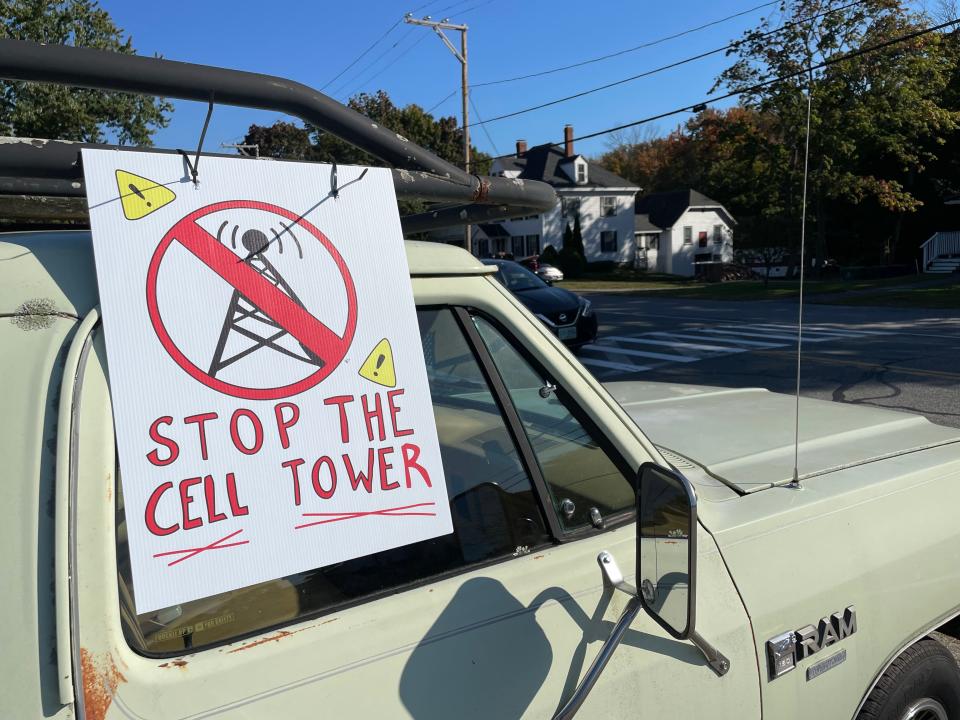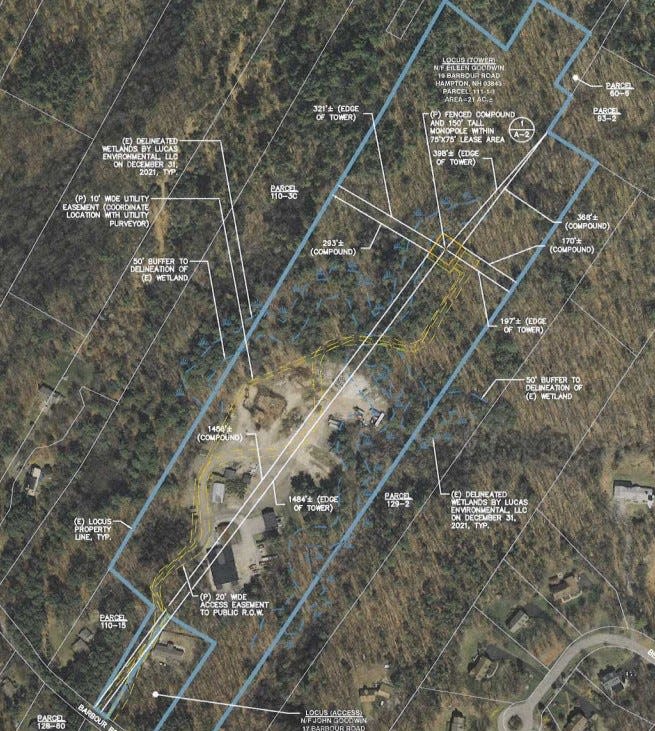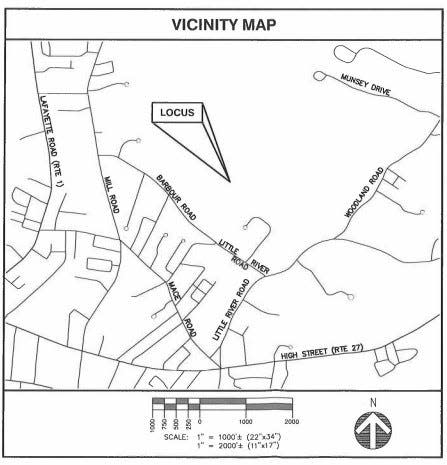Hampton rejects 156-foot cell tower on Barbour Road: Here's why and what's next
HAMPTON —The Zoning Board voted to deny Vertex Towers' application for a 156-foot cellular tower and will now wait to see if the decision is met with legal action.
Zoning Board members voted unanimously Wednesday night to reject the application for the tower at 17R Barbour Road. They decided they could not grant the variance sought for height based on the opinion of the town's hired consultant. They also said Vertex had not proven the tower would not impact property values of neighboring properties.
The project drew opposition from residents, many of whom appeared at the meeting and applauded when the board took their vote.
Residents had concerns about the potential health effects associated with a tower as well as the impact on property values.
“The residents of the Barbour Road neighborhood are ecstatic and relieved that our health and property values remain safe,” resident Dolores Messner said.

Vertex attorneys Francis Parisi and William Dodge did not respond to inquiries as to whether Vertex will file legal action challenging the board's decision. Vertex has done so in response to decisions in other communities, arguing the federal Telecommunications Act of 1996 supersedes local and state law in allowing cellular structures where coverage is lacking.
Seabrook Station NextEra seeks NRC approval to change nuclear plant's emergency plans
Zoning Board ruling based on height, property values
Vertex has been seeking to fill a coverage gap that runs along Route 1, where cellular service is lacking. Their application in Hampton is one of two they have put forth in the Seacoast to cover the gap, the other being in North Hampton where a tower received approval last year.
Last year, Zoning Board members hired a consultant, IDK Communications, to determine if Vertex’s proposed tower was necessary to fill coverage and if the tower was the only viable option. In December, they also continued their decision to the Jan. 10 meeting to allow more time for the public to provide information on whether property values could be affected by the tower.
Wednesday, the Zoning Board noted the town's consultant stated the height of a 110 foot tower would be enough to satisfy coverage. The board was told three providers would be able to theoretically provide coverage on the tower, each provider stacked at 85 feet, 95 feet and 105 feet.
That led board members to decide a 156-foot tower was not the only viable option to provide service.
“I guess my bottom line is that I believe the cell tower 150 feet should not be granted,” Zoning Board Chair Bill O’Brien said.
Board members were also unsatisfied with Vertex’s consultant hired to demonstrate home values would not be impacted by the tower.

Board member Erica DeVries pointed out that the burden is on Vertex to prove that home values won’t be impacted.
“I wish I could render an expert opinion on it,” O’Brien said. “But my bottom line is, in my judgment, after listening to experts, pro, and con, I’m going to opt on the side that there is a diminution of value to nearby residents.”
Residents and board members wait to see if Vertex files legal action
Board members have been aware of the potential for Vertex’s case to end up in court following their decision. In November, O’Brien pointed out the importance of the Zoning Board thoroughly explaining their reasoning in a findings of fact document in case either side of the case challenged the ruling.
Vertex filed a federal lawsuit against the town of York’s Board of Appeals last year after that board voted against granting a variance for a tower to be built in a zone where towers were prohibited by a local ordinance. That case was recommended to be tossed by a magistrate judge, and Vertex withdrew its case without prejudice, meaning they could bring it back at any point.
Vertex’s attorneys said at the time they withdrew because AT&T was applying to place a cellular antenna on top of a water tank in York and that they would wait to see the outcome of that application. AT&T was granted their approval for the water tank antenna, and Vertex has not responded to an inquiry as to their next step in York.

Messner said she cannot tell the future as to whether Vertex will challenge the ruling, but she suspects they may, based on what they have done in other towns. She said the effort in the neighborhood to fight the proposed tower has been positive, though. They placed signs around town with a picture of a red cancel symbol over a drawing of a cell tower. Each meeting has been standing room only as residents appeared month after month to speak in public comment.
“It’s become a stronger community because of this,” Messner said. “It’s really quite the neighborhood now. We’re really fortunate.”
This article originally appeared on Portsmouth Herald: Hampton NH rejects 156-foot cell tower on Barbour Road

